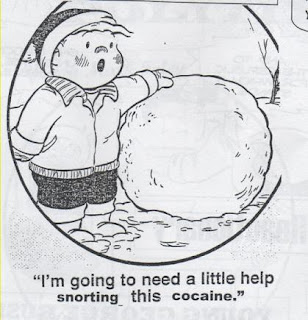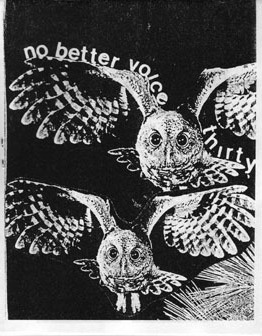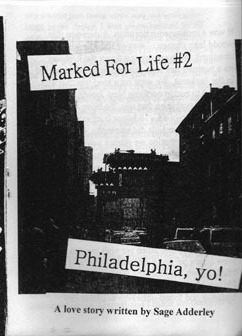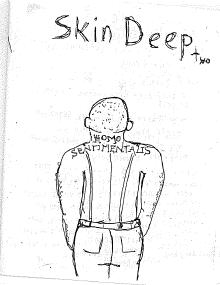
Zine Review: Scam #5½
via Trading Stories with the Leaves by Trading Stories on 11/29/07
Arnold Zwicky wrote an interesting post for Language Log recently, about the blurred edges of technical and everyday words. He pointed out how "the common-language use of epicenter for the central point of an event" is slightly different from its original jargon meaning: "Technically, it's the location on the earth's surface over the place where the earthquake event happened, undergound."
When Erick Lyle named Scam #5½ "The Epicenter of Crime: The Hunt's Donuts Story", borrowing the phrase from a news broadcast, I suspect he was using epicenter in the common-language sense. But the technical meaning is perhaps even more fitting, because Hunt's Donuts — beneath the "OPEN 25 HOURS" neon sign — was the point where the underground centre was reflected on the surface. It was the place where the petty criminal underworld of
You can read part of the Hunt's Donuts story in a March 2000 article in the SF Weekly. By that time it was called Magic Donuts, and the city was trying to force the new owners to shut the place down, using their tactic of suing "Mom and Pop" store owners for social problems beyond their control. But if you want the full story, the real story of Hunt's Donuts on 20th and
In Lyle's story, the Magic Donuts dispute is just the latest episode in a long history:
... the story of Hunt's is both less and more than news. Its a rumor, an illicit history, the pull of the gravity of the epicenter of crime. At 20th and
Hunt's Donuts was a microcosm of the
We see Hunt's through the eyes of its owners, its customers, the growing Latino population, the police — both sympathetic and otherwise, the drunks, the punks, and the yuppies moving in and gentrifying the
Erick Lyle, Scam #5½, ¼ size, 32 pages.
Available from Paper Trail, Needles + Pens, McPheeters and Microcosm











